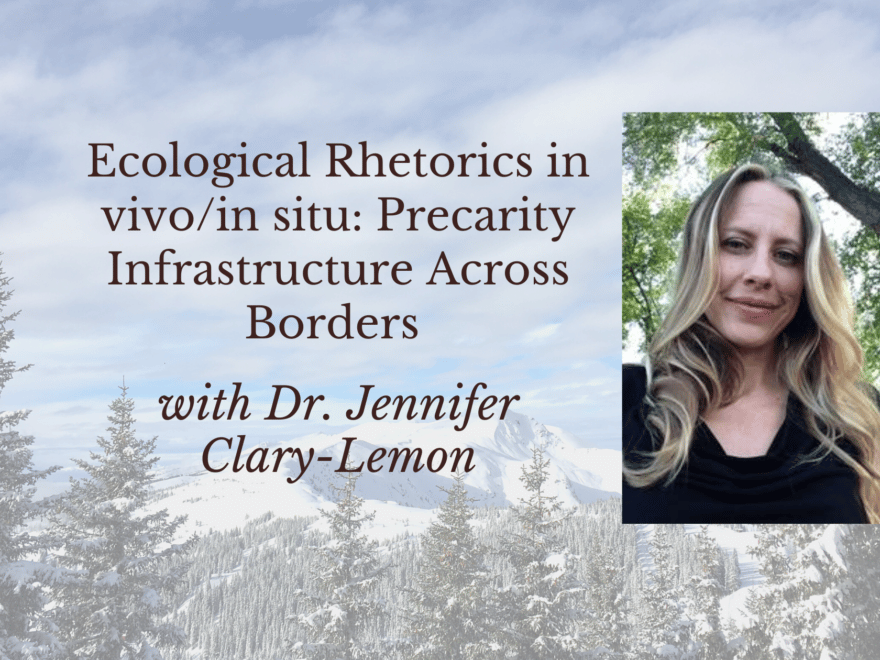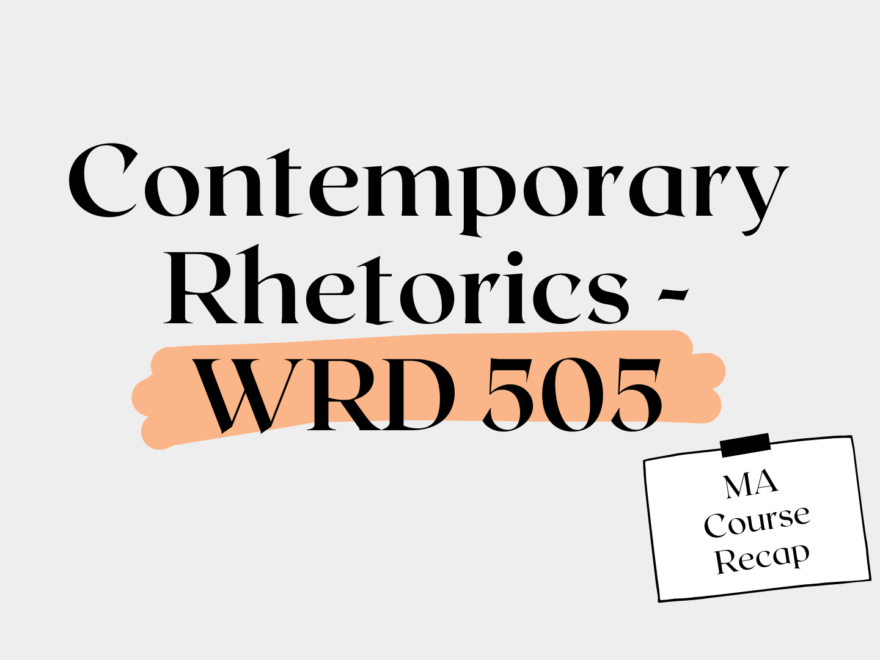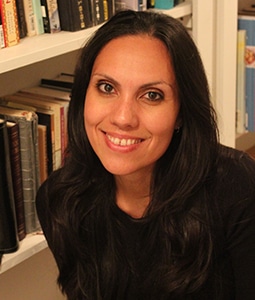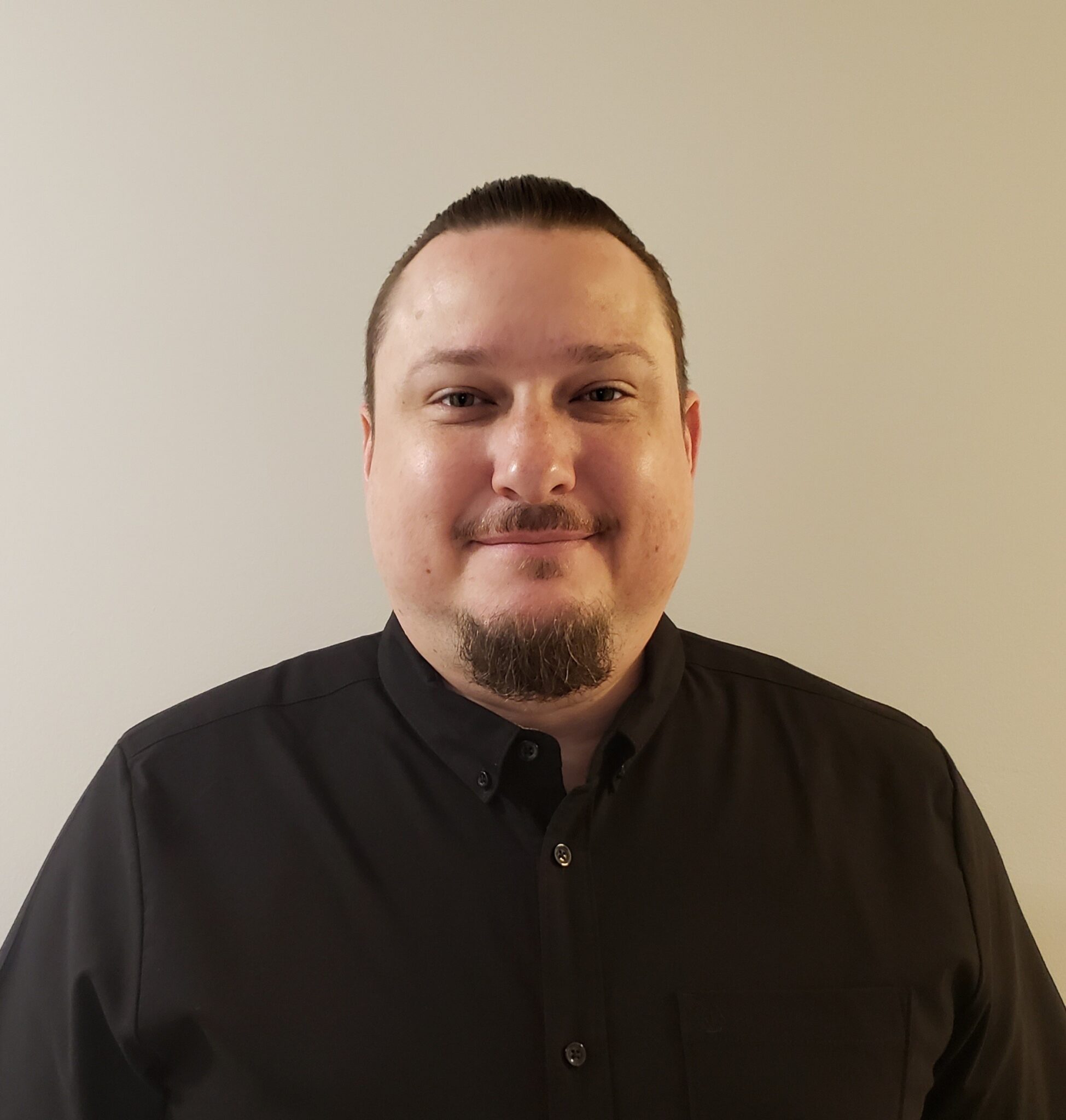The WRD Writing & Rhetoric Across Borders Series is back in person! On Wednesday, October 5 from 4:30 to 6 p.m. in McGowan South 105, gather together with Dr. Jennifer Clary-Lemon to learn about how built objects affect the things around them. If you have ever gotten into a serious debate about what is and is not considered rhetoric–this talk is for you! As always, the event is free to attend! Dr. Clary-Lemon is an associate professor at the University of Waterloo in Ontario, Canada. She has a BA in Political Science from the University of Arizona, an MA in
Continue reading








